Read this if you're primary problem is procrastination—putting stuff off until the very last minute, pulling off crazy cramming sessions and all-nighters.
Procrastination is a problem for you. A huge problem. A mountain of a problem that's been impossible to crack.
And yet… you’re doing okay, right?
You’re surviving. You’re getting by. You always manage to do just enough to not get fired or expelled.
Because you’re not a Slacker.You’re a Procrastinator.
What’s the difference? Well, Slackers don't care about their school or work obligations. They're indifferent to getting good grades or contributing fairly to their jobs. And they certainly aren’t dreaming about making a positive difference in the world or achieving lofty goals.
Slackers don’t care about anything, so, over time, they don’t really do anything.
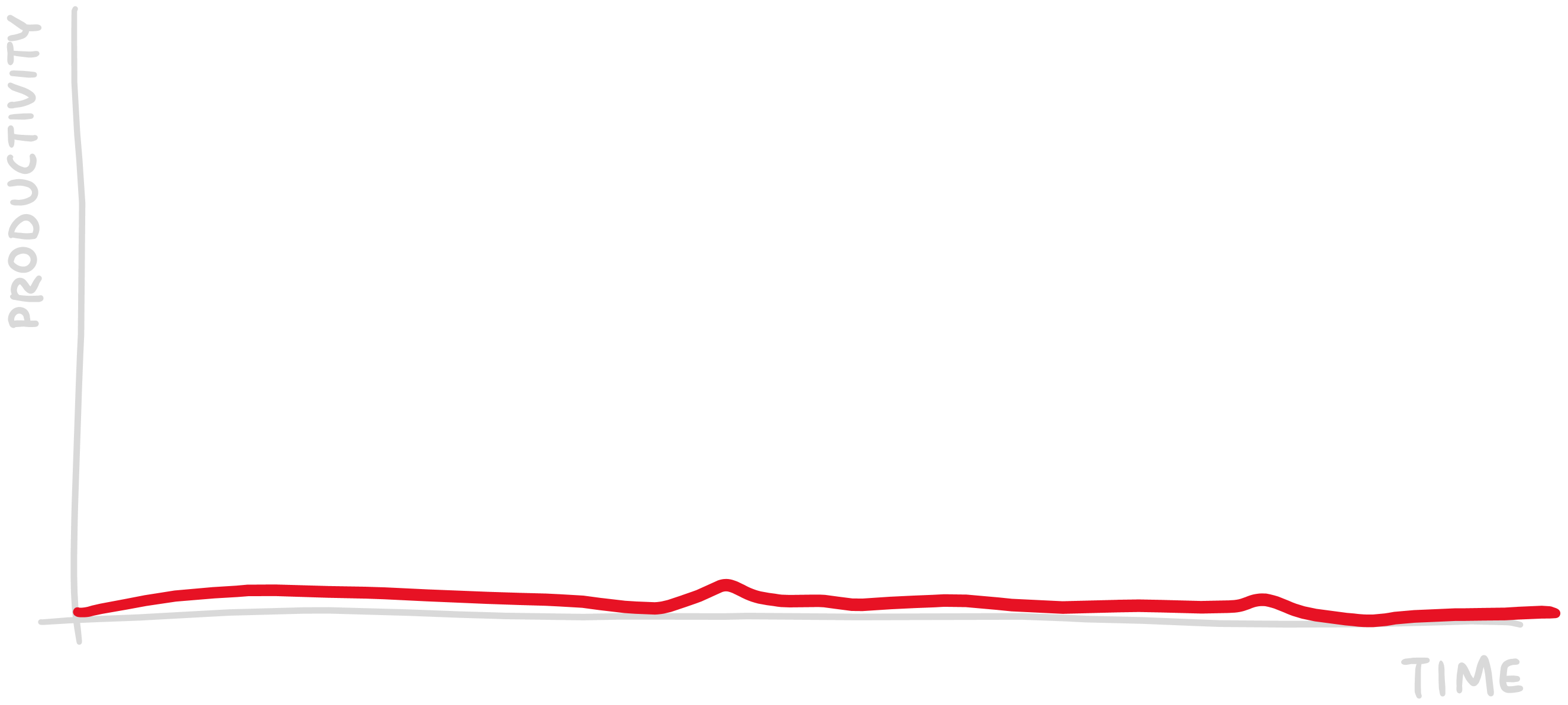
But that’s not you.
You care. You care a lot. You care often to the point of anxiety and panic.
No matter how deep you fall down the content rabbit hole, at some point—and that point being the precise moment when you have just enough time to do the work—you snap into action. You cram and hustle and pull crazy all-nighters.
It's not exactly pretty, but as a Procrastinator, you always do what you need to do… but only at the last possible minute.
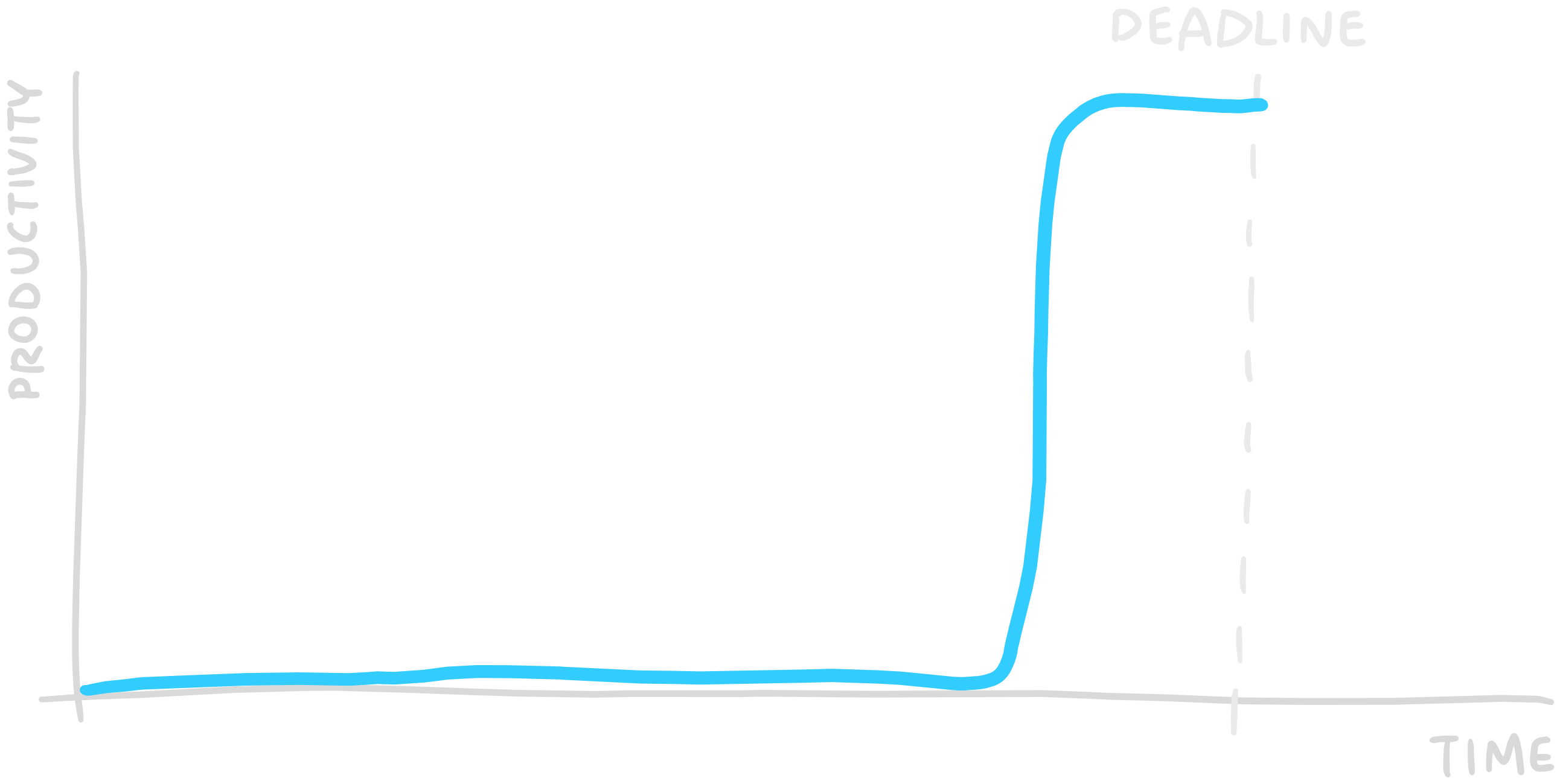
Of course, you don't want to go on living like this. You don't enjoy the risk of procrastination, nor the pangs of guilt and regret.
So, in anticipation of the next deadline, you make promises and commitments. You summon up your determination and grit. You lift yourself up by the bootstraps.
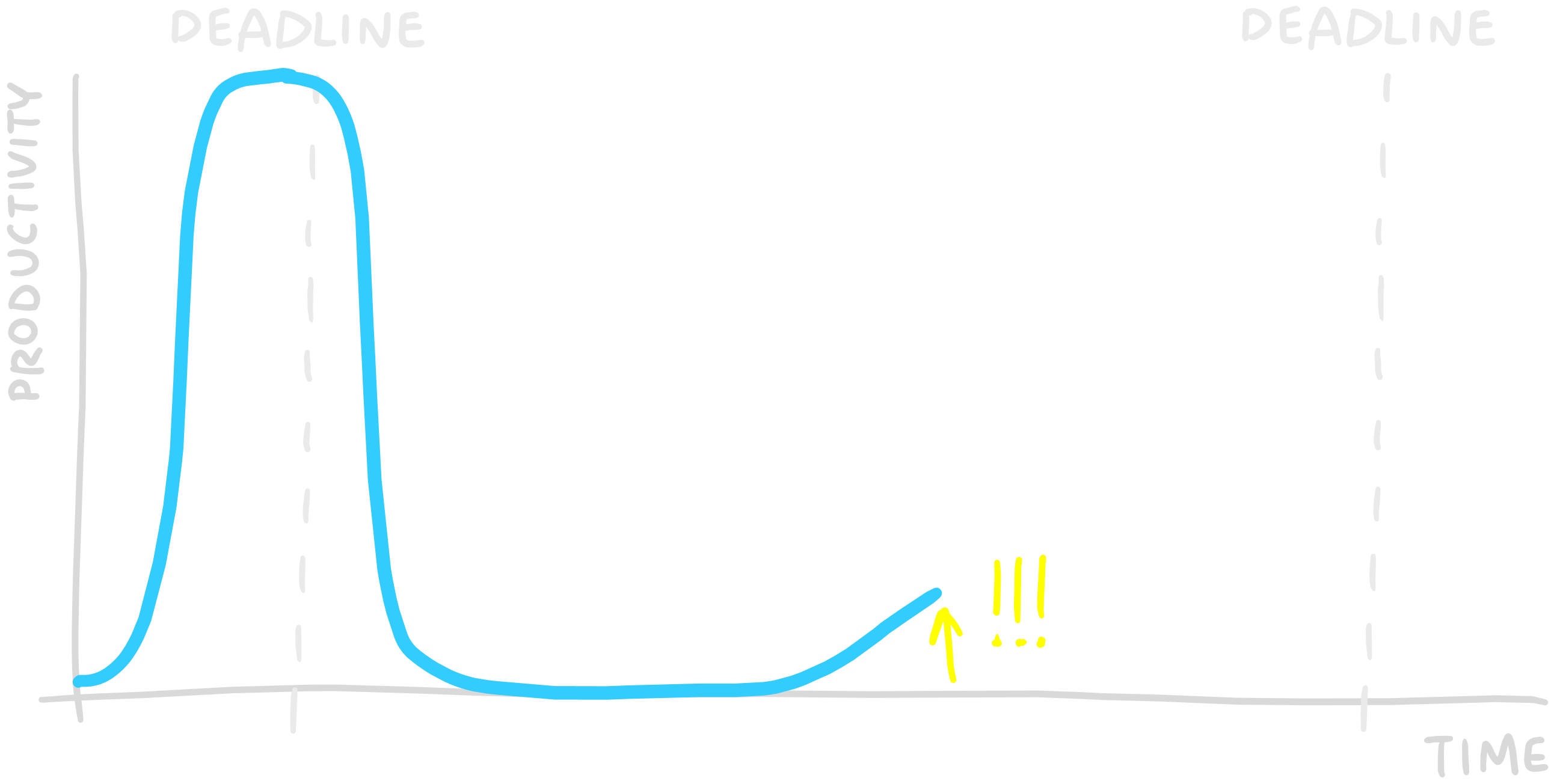
But of course, it never lasts. You run out of steam. You slip a little, then a lot, and before you know it, you're crashing back down in a fiery blaze of self-reprimand and self-hate.
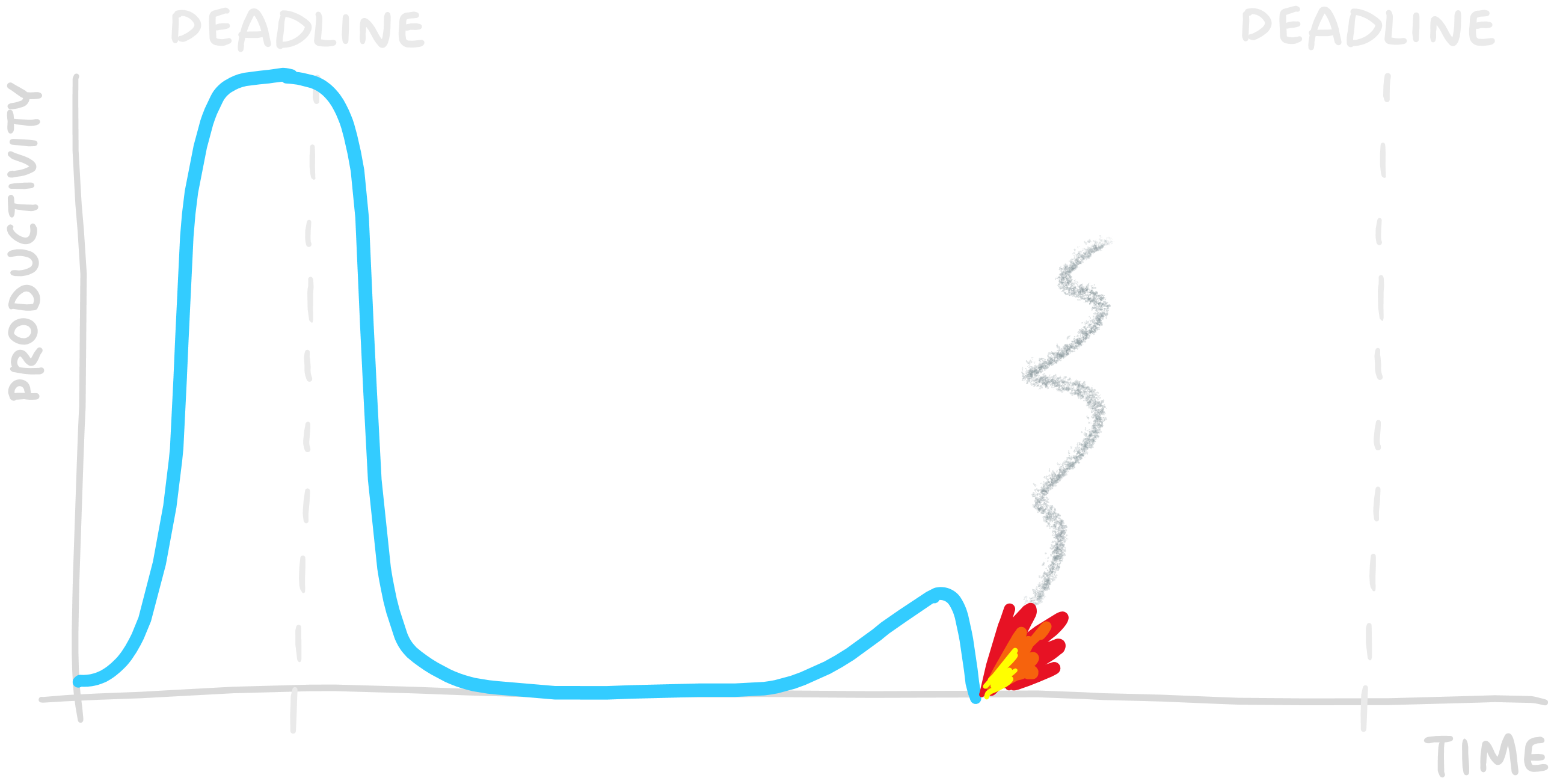
-+-+-
And what about the stuff you want to do, rather than need to do? I’m talking about your projects without a fixed deadline: your creative pursuits and business ideas; your dreams to start a YouTube channel, write a novel, or work as a freelance artist.
For that, you reverse-procrastinate. This is where you get stuff done… but only at the very beginning when it's still fresh and you're feeling excited and inspired.
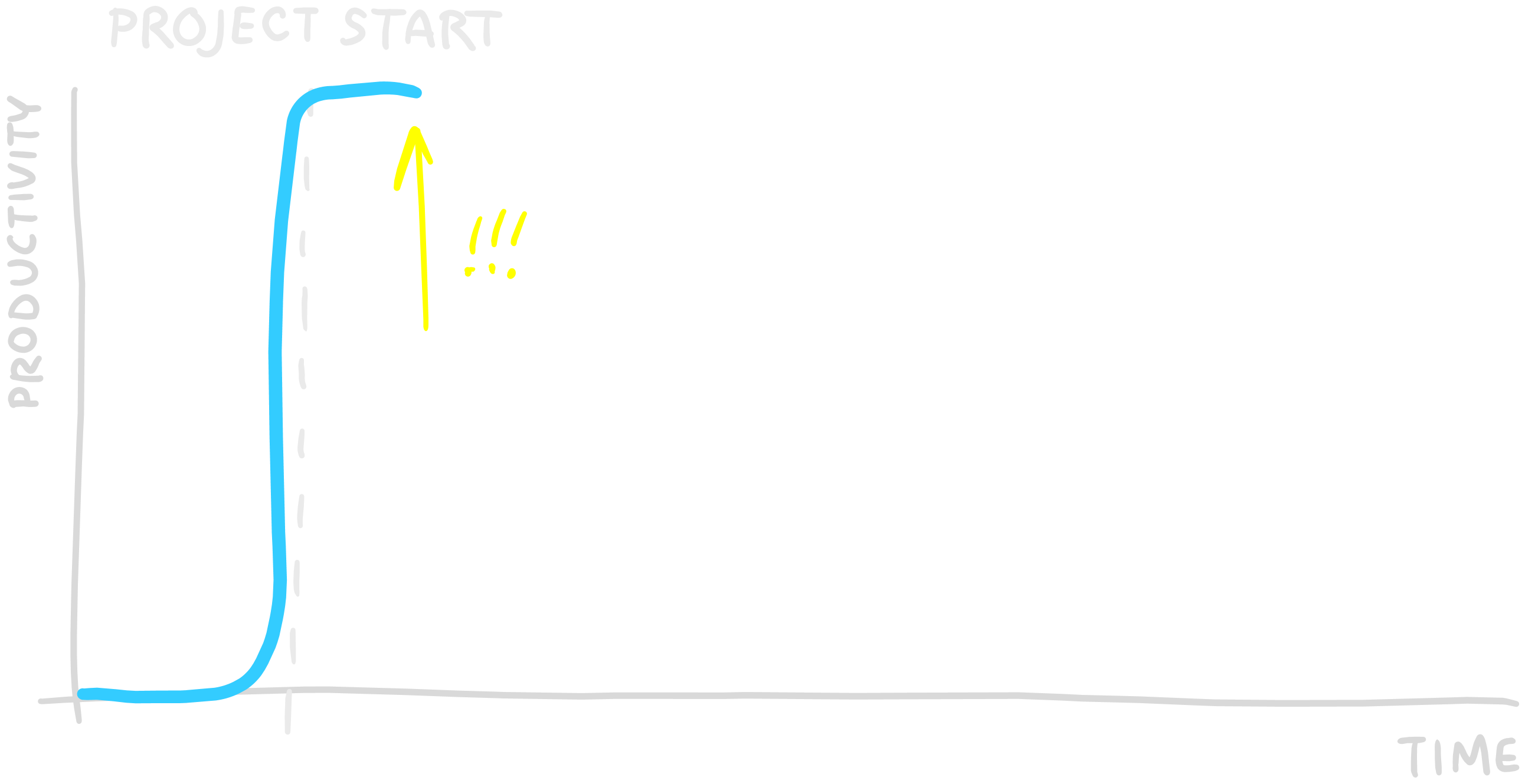
But when your conviction fizzles out, so does your motivation. Your productivity quickly flatlines back to nothing, leaving you with yet another abandoned pursuit.
The Procrastination Cycle
All of this, when put together, forms a pattern—a cycle that you, as a Procrastinator, go through week after week, month after month. It's how you live your life.
I call it the Procrastination Cycle.

A few cycles of this is harmless, yet years of it has hollowed you out, decimated your self-worth and self-trust, and robbed you of your dreams and ambitions.
This is a big problem. In fact, it's the problem—the one this entire book is centered on.
And, here's what I can tell you:
Understanding the Procrastination Cycle at a granular level of detail—why it dips (1), drops (2), flattens out (3), and spikes (4)—is essential for overcoming this behavioral pattern.

The solution to procrastination starts with a thorough understanding of the procrastination problem itself. And it's through this understanding that the Habit Reframe Method was developed. So let's go through the repeated segments of this pattern and what causes them.
-+-+-
All of your behavior with regard to procrastination can be traced back to a set of five distinct psychological phenomena.
Primitive survival instincts are responsible for that pre-deadline blast of hyper-productivity.
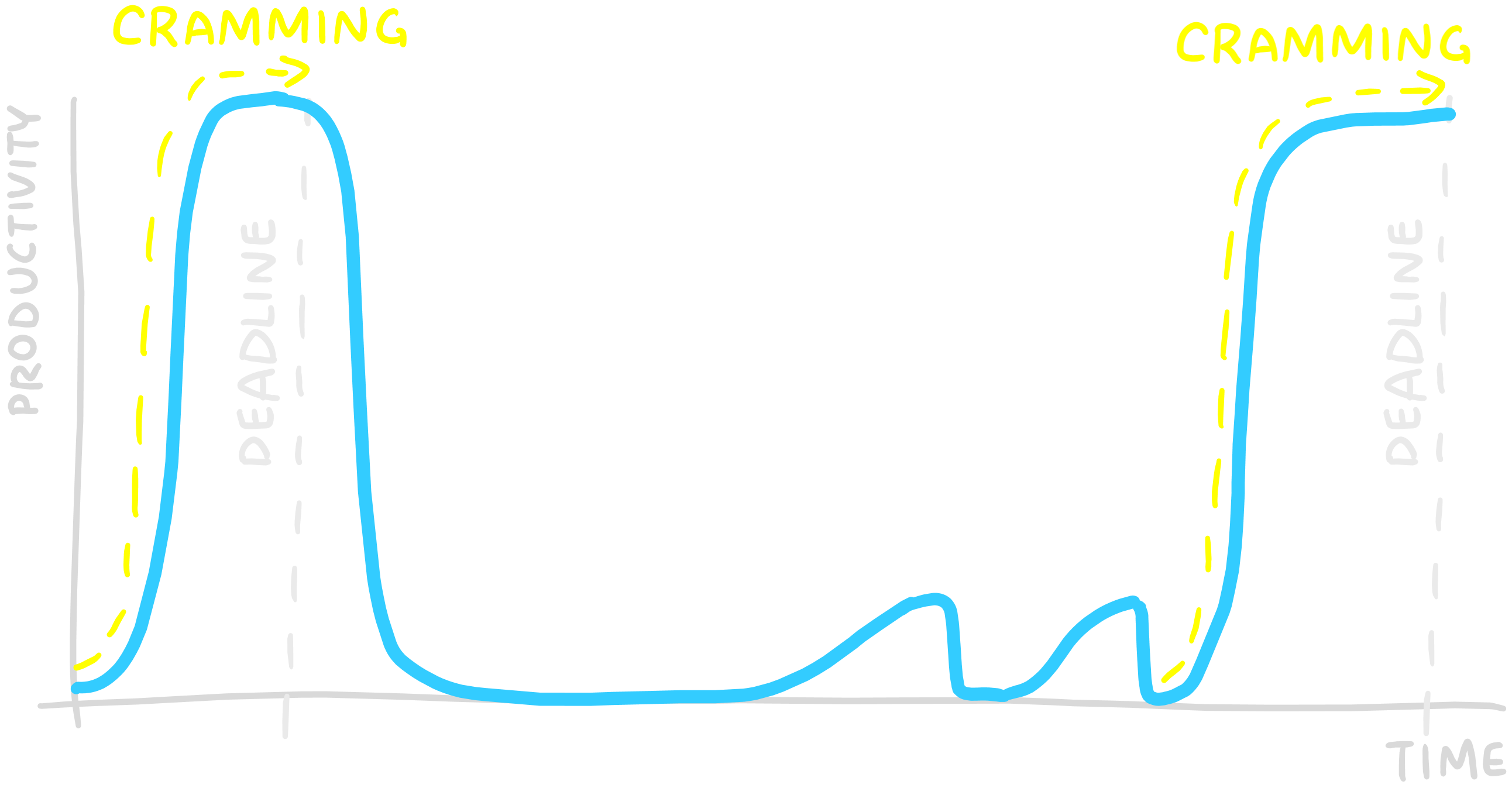
You cram because you have to cram; ignoring the work before it's due would result in serious risks to your survival.
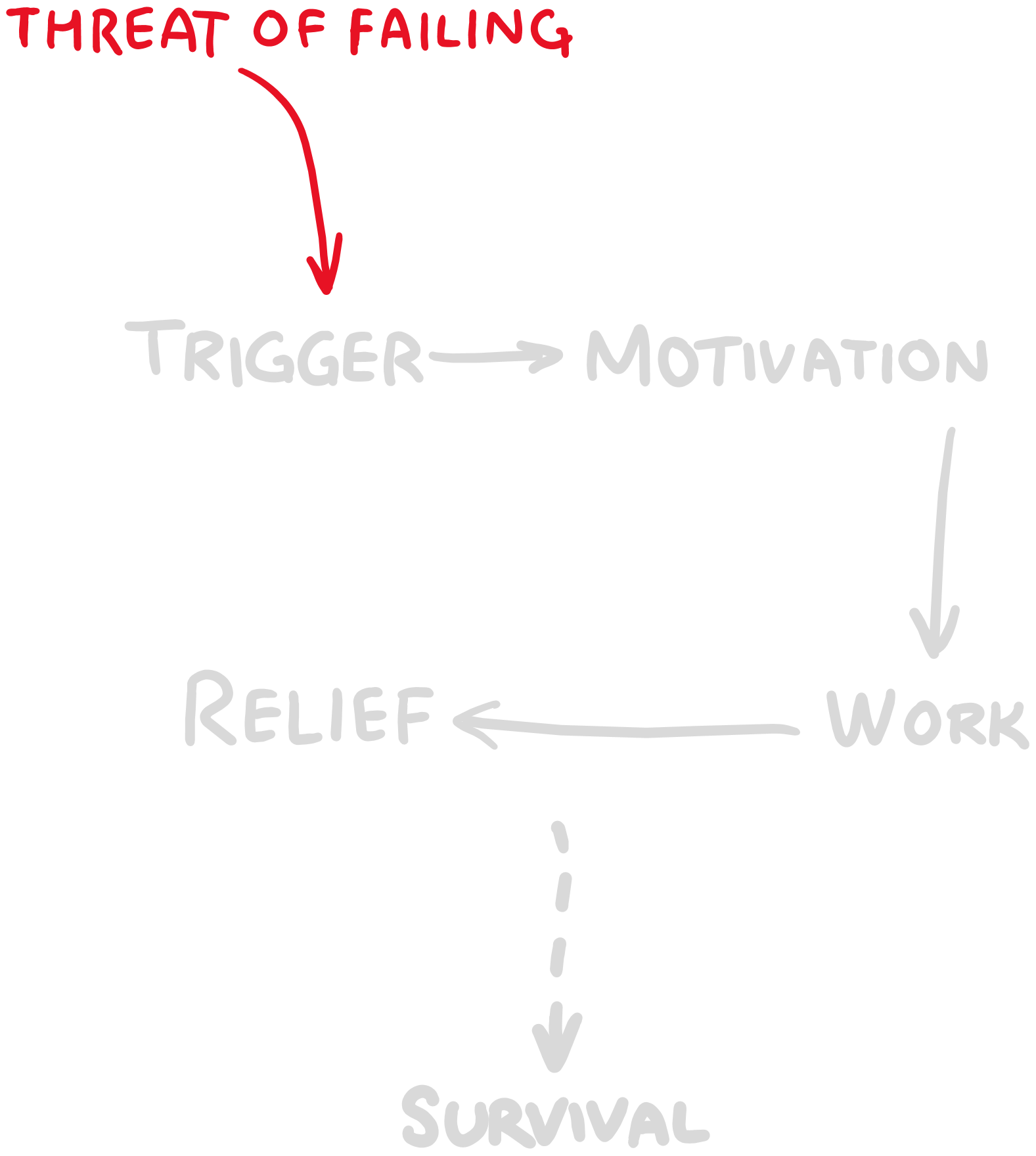
The other four segments of the cycle are equally explainable.
First we have the dip. This represents the initial cause, the force that tips the first domino and sets the entire sequence in motion. Biological forces are responsible for this. It's just your primitive brain assuming your vices are the absolute best way to ensure your survival—an assumption based on outdated programming that is never reprogrammed with the truth. I go deeper on this here.
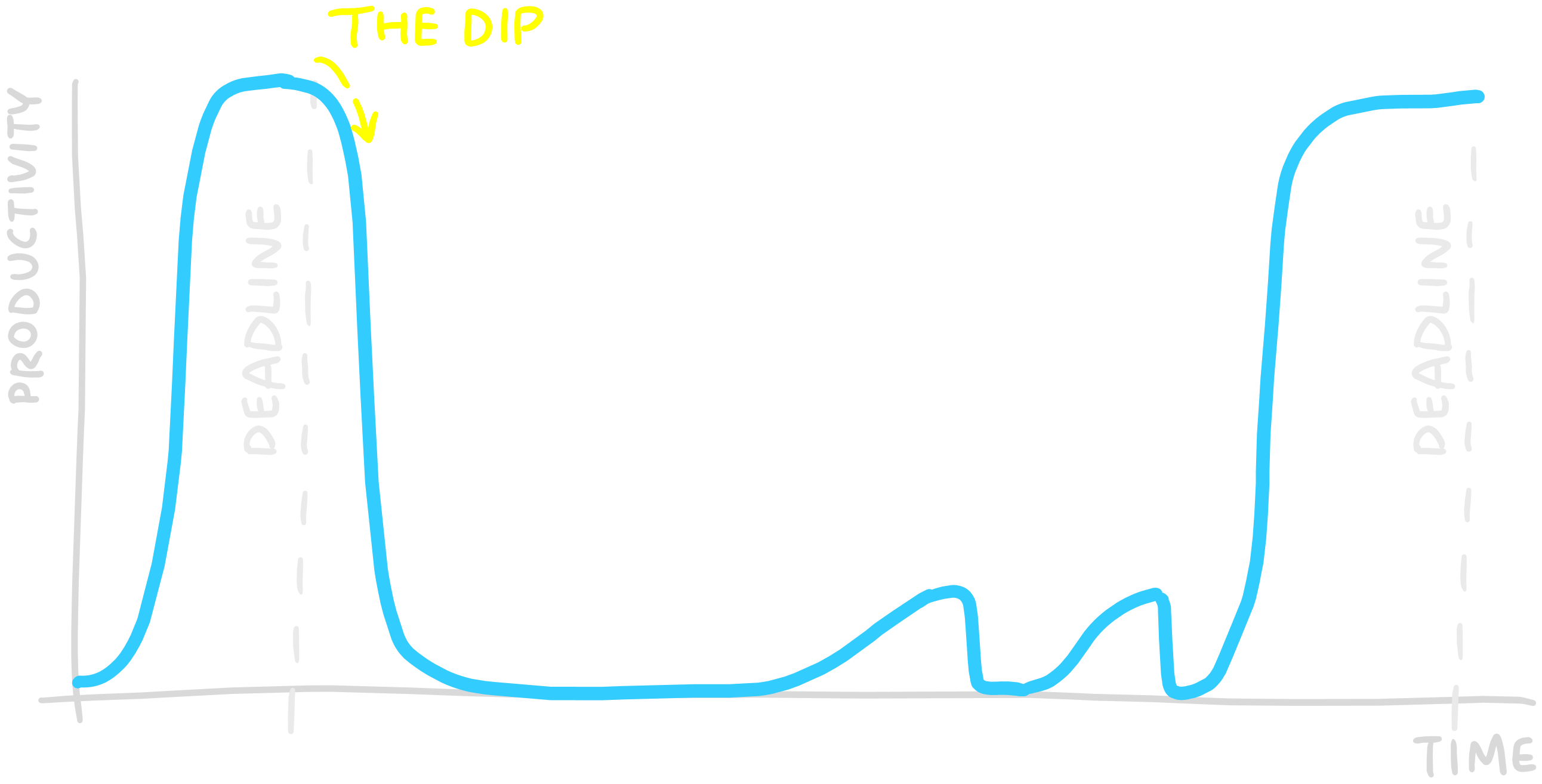
Then comes the drop: the swift and unchecked decline in productivity that occurs during that first work or study session. This occurs due to a domino effect that’s subtle, yet with an insidious power that has you wasting away entire days. I call this the DoomScroll feedback loop and it occurs because the act of relieving a bad feelings (i.e. survival threatening) like stress and anxieties itself leads to consequences, which, in turns re-triggers the same feelings.
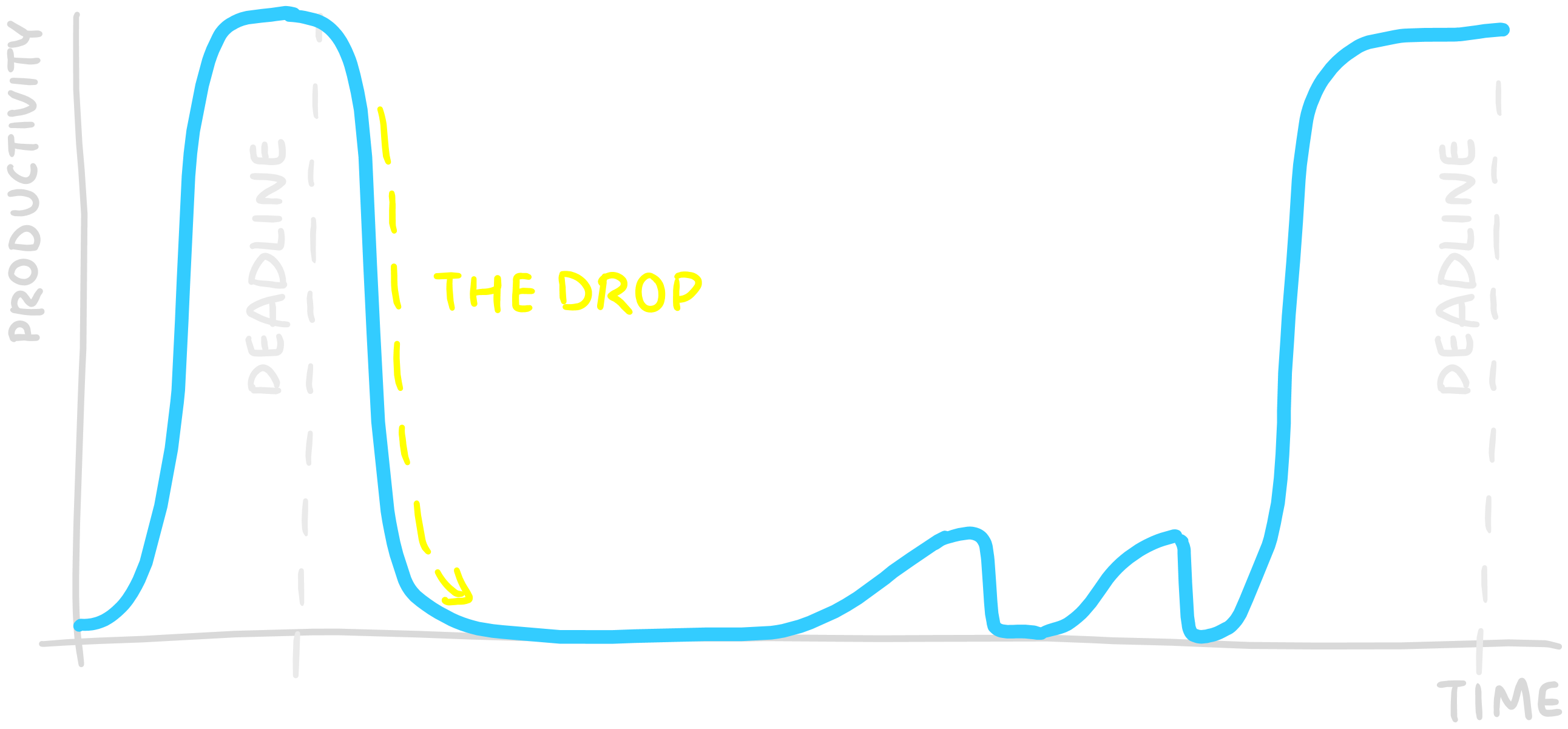
Next we have the Rut. These are your 'zero-days'; the stretch of days, weeks, or even months when you're incapable of doing much of anything. In the back of your mind you know you should be doing “the thing,” but you don’t. You have a complete lack of energy, interest, and motivation.
The source of this feeling—pins your productivity line down like an old dog on bedsheets—is Vice Induced Depressive Syndrome (VIDS). As I explain in the video, these are real, tangible symptoms—not unlike the symptoms you'd get if you were poisoned by some heavy metal. It's not you being lazy or pathetic or undisciplined. These symptoms drive your "lazy" behavior—full stop. More on their source here.
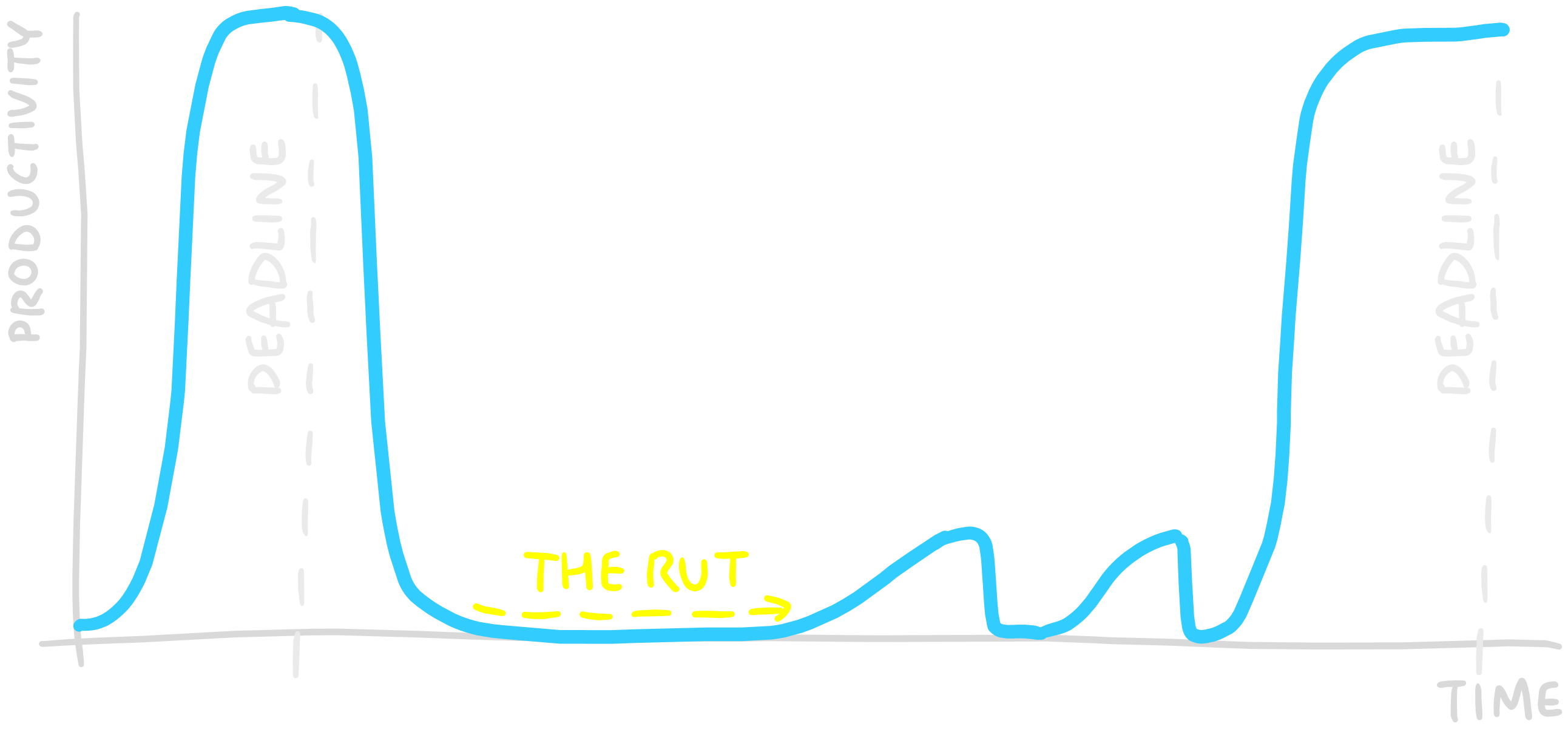
-+-+-
Eventually, a moment of clarity strikes: "Enough is enough. Time to get to work."
This sparks a burst of productivity, which, of course, never lasts. These are the Crashes, and they can happen several times before the next cramming period begins.
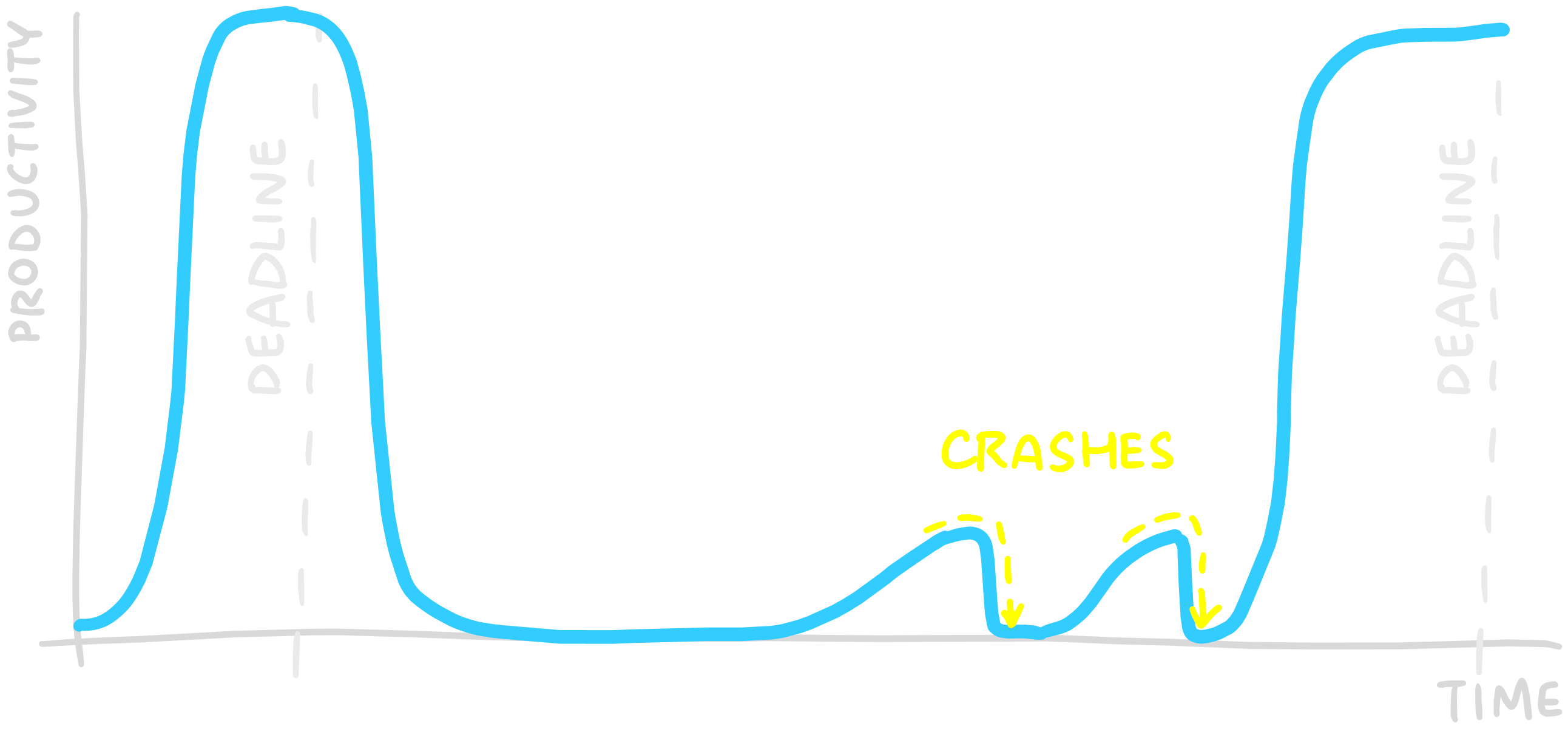
These are a direct result of Expectation Gaps: a situation where you feel an urgent desire to get some work done (aka inspiration) while simultaneously being afflicted by VIDS symptoms. You get pummeled with resistance—that ugh, I just don't feel like it sensation—which leads to frustration (a bad feeling) and time wasting to relieve the bad feeling.
The Solution to the Procrastination Cycle
In the first video, we uncovered the root causes of your procrastination problem. We'll transition to the solution in the next, which is best described with an analogy.
Say this method wasn’t about procrastination. Say it was about weight loss. Losing weight comes down to sustaining a calorie deficit. So, the simple and conventional solution is to go on a diet and eat less than your body is craving.
The same basic principle applies to procrastination. To stop procrastinating, the simple and conventional solution is to buckle down, use self-control, and get the work done.
Want to lose weight? Eat less. Want to stop procrastinating? Do the damn work. It’s not complicated, right?
But the problem with this paradigm is… it doesn't actually work. Though technically true, for most people, this advice is not just unhelpful; it actively sabotages their efforts.
Now, what if the goal of the weight loss intervention wasn’t to get you to eat less through self-control? What if, instead, it was to make you desire less food—to be less hungry, less often?
If that were the case, your ability to withstand deprivation would be moot. You wouldn’t need strong determination and self-discipline to eat less than your body craves. You'd be able to sustain that deficit and lose the weight without any deliberate effort. It would just happen¹.
In the same way, the Habit Reframe Method isn’t about getting you to master self-discipline and self-control. It's not about increasing your ability to force yourself to do what you don't want to do.
It's about building an innate desire to do the work. It’s getting you to actually want to do the right thing—to want to do the work, regardless of the proximity of a deadline (or the lack thereof).
I'll say it again:
The solution to the Procrastination Problem is to increase your desire to do the work, rather than increase your ability to force yourself through self-control and discipline.
That's the ultimate goal of this method. We're taking a fundamentally different approach to self-improvement. We’re seeking to eliminate the root cause of procrastination… then allowing the changes in behavior to happen organically. No force. No willpower. None of that.
This, I believe, is the absolute best way to live out your best life: getting stuff done while feeling great about the process.
Footnote:
1. Indeed, the medication Ozempic has gained significant attention lately for its ability to help individuals reduce their food intake, not by augmenting their willpower, but by diminishing their appetite and desire to eat. While it has shown effectiveness, it remains controversial and is subject to ongoing debates regarding its implications for lifestyle and health. My thought is that it can never be a permanent solution because it doesn't target the core cause of the individual's excessive appetite (many of which can be emotional: processed foods can be the ultimate destressing vice for some people... but then weight gain causes stress, so more need for food as an escape, and so on).
